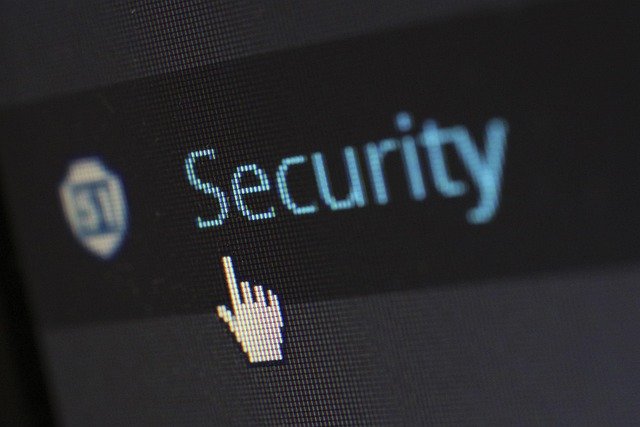Cyber Security Degree Programs and Training Options for 2025
The digital landscape in India is rapidly evolving, creating unprecedented demand for cyber security professionals. With cyber threats becoming more sophisticated and frequent, organizations across sectors are prioritizing digital protection strategies. A cyber security degree has emerged as one of the most valuable educational investments for those seeking stable, high-growth career opportunities in technology.

Online Programs in Cyber Security for 2025
The shift toward digital learning has revolutionized cyber security education in India. Online programs offer flexibility for working professionals and students who need to balance studies with other commitments. Leading Indian institutions like the Indian Institute of Technology (IIT) and Indian Institute of Science (IISc) now offer comprehensive online cyber security programs. These programs typically cover network security, ethical hacking, digital forensics, and risk management.
Online cyber security programs in India range from certificate courses lasting 3-6 months to full degree programs spanning 2-4 years. The curriculum often includes hands-on labs, virtual simulations, and real-world case studies that prepare students for industry challenges. Many programs also incorporate industry certifications like CEH (Certified Ethical Hacker) and CISSP (Certified Information Systems Security Professional) into their coursework.
Cyber Security Training Options to Explore This Year
Beyond traditional degree programs, India offers diverse cyber security training pathways. Professional certification programs provide specialized skills in areas like penetration testing, incident response, and security architecture. Government initiatives such as the Cyber Security Skilling Program under the Ministry of Electronics and Information Technology have created additional training opportunities.
Bootcamp-style programs have gained popularity for their intensive, practical approach. These programs typically run for 12-24 weeks and focus on immediately applicable skills. Corporate training programs offered by companies like Infosys, TCS, and Wipro provide another avenue for skill development, often combining theoretical knowledge with real-world project experience.
Educational Paths for a Future in Digital Protection
Cyber security education in India follows multiple pathways, each suited to different career goals and backgrounds. Traditional computer science or information technology degrees with cyber security specializations provide comprehensive technical foundations. Alternatively, dedicated cyber security degree programs offer focused curricula designed specifically for digital protection roles.
For professionals transitioning from other fields, accelerated programs and professional certifications offer efficient skill acquisition. Many universities now offer evening and weekend programs to accommodate working professionals. Research-oriented paths through master’s and doctoral programs prepare students for advanced roles in cyber security research and development.
| Program Type | Provider | Duration | Cost Estimation (INR) |
|---|---|---|---|
| Online Bachelor’s | IGNOU | 3 years | 50,000 - 80,000 |
| Professional Certificate | NIELIT | 6 months | 15,000 - 25,000 |
| Master’s Program | IIT Delhi | 2 years | 2,00,000 - 4,00,000 |
| Industry Bootcamp | Simplilearn | 3 months | 40,000 - 60,000 |
| Corporate Training | TCS | 6 months | Employer-funded |
Prices, rates, or cost estimates mentioned in this article are based on the latest available information but may change over time. Independent research is advised before making financial decisions.
Career Prospects and Industry Demand
The cyber security job market in India is experiencing explosive growth, with demand far exceeding supply. Government digitization initiatives and increasing cyber threats have created opportunities across sectors including banking, healthcare, e-commerce, and telecommunications. Entry-level positions typically start with roles like security analyst or junior penetration tester, with advancement opportunities to senior architect and chief information security officer positions.
Salary ranges vary significantly based on experience, location, and specialization. Mumbai, Bangalore, and Delhi NCR offer the highest compensation packages, while tier-2 cities are increasingly developing cyber security job markets. The growing emphasis on data protection regulations and compliance requirements ensures sustained demand for qualified professionals.
Choosing the Right Program
Selecting an appropriate cyber security education path requires careful consideration of career goals, current skill level, and available time commitment. Prospective students should evaluate program accreditation, faculty expertise, industry partnerships, and placement records. Hands-on learning opportunities, access to modern security tools, and networking opportunities with industry professionals are crucial program features.
Many successful cyber security professionals recommend combining formal education with practical experience through internships, capture-the-flag competitions, and open-source project contributions. Continuous learning remains essential in this rapidly evolving field, making the choice of initial education program a foundation rather than a final destination.
The cyber security education landscape in India continues expanding, offering numerous pathways for aspiring digital protection professionals. Whether through traditional degrees, online programs, or specialized training, the key lies in selecting programs that align with individual goals while providing practical, industry-relevant skills.



